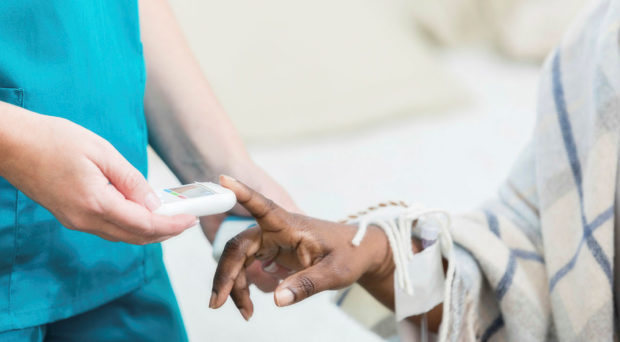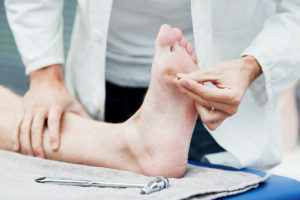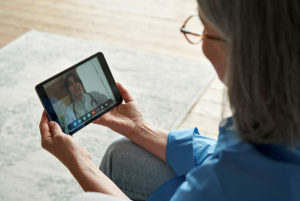
In this blog, we will look at some of the studies registered with the ISRCTN registry that investigate the role of nursing care in diabetes and the provision of diabetes care during the COVID-19 pandemic. A collection of research into diabetes from Springer Nature to commemorate World Diabetes Day 2020 can be found on our landing page.

The International Diabetes Federation World Diabetes Day 2020 falls on November 14th and the theme ‘Nurses make the difference for diabetes’ aims to raise awareness around the crucial role that nurses play in supporting people living with diabetes and the global shortage of nurses. Additionally, the UN has set ensuring healthy lives and promoting well-being for people of all ages as one of its sustainable development goals.
The UN sustainable development target 3.4 is to reduce premature mortality from non-communicable diseases, such as diabetes, by one-third by 2030 through prevention and treatment and the promotion of mental health and well-being.
Nurses play a vital role in the diagnosis and prevention of diabetes and the reduction of diabetic complications by tackling risk factors for type 2 diabetes, screening and diagnosing at-risk individuals, and providing education, self-management advice, and psychological support to patients. With the COVID-19 pandemic and restrictions that have been put in place to reduce the spread of the virus, there has been a decrease in face-to-face healthcare appointments.

High blood sugar levels can cause nerve damage and sensation loss starting in the feet, which can lead to ulcers. Diabetes nurses are involved in the care of these ulcers. Sitting is advised so patients do not put pressure on their feet, however, lack of exercise can also have negative health consequences. The ‘SIT and be FIT’ study will investigate the health impacts of seated arm exercise in diabetic foot ulcer patients.
A Swedish study will investigate whether using individualised support plans for people with type 2 diabetes who do not achieve their treatment goals is effective at controlling blood sugar levels. These plans will be developed by diabetes nurses who will work with patients to identify barriers to self-management and to set relevant and feasible goals.
The role of nurses of different specialities in the care of diabetes is also important, as many diabetic patients have multiple health conditions. The DEPSY study will study the effect of diabetes education tailored to nurses in psychiatry, as individuals with severe mental illness are at a higher risk of diabetes and poor diabetes management and therefore complications.
Using virtual appointments and mobile applications to deliver diabetes care may be necessary during the COVID-19 pandemic, and could allow patients greater access to information and allow nurses to provide additional support between appointments.

Being physically active and exercising is important in the treatment of type 2 diabetes in helping to control blood sugar and prevent complications. The MOTIVATE T2D study is investigating the use of mobile health technology to provide exercise advice for people with type 2 diabetes In Canada and the UK that might usually be delivered by a specialist nurse.
Similarly, a study into diabetic education using a mobile app for people with type 2 diabetes will provide education and management advice digitally and assess the impact of this on health.
Many patients with diabetes require insulin therapy to control blood sugar levels. The GetFit study is investigating a messaging service to support German patients with type 2 diabetes on insulin therapy to provide individualised care, which would usually be calculated during appointments with healthcare professionals.
Type 1 diabetes is usually diagnosed in children and young adults for whom learning to control blood sugar levels can be overwhelming. Specialist nurses often play a role in providing advice about diet and monitoring and managing blood sugar levels. A study of Swedish patients with type 1 diabetes aims to investigate whether a virtual diabetes clinic, in addition to the normal hospital visits, can help support young adults to manage their treatment and to have a better quality of life.

Additionally, the D1 Now study plans to use mobile communication, via SMS messaging, for type 1 diabetes patients in Ireland and the UK. The messaging tool will send reminders and ask questions about alcohol intake, motivation and support for diabetes management, blood glucose monitoring, and incidences of severely low blood sugar or diabetic ketoacidosis.
This study will investigate the role of nurses as support workers, liaising between the patient and the information they provide using the messaging service and the rest of the diabetes care team. It is hoped that alternative methods of providing care may be useful in preventing patient disengagement, which is common during the transition between childhood and young-adult care for diabetes.
Access to diabetes care and support is as crucial as ever during the COVID-19 pandemic. Find out how you can get involved in raising awareness on #WorldDiabetesDay. You can also find out more about the UN’s sustainable development goals and what we are doing at Springer Nature to support these goals.
Comments